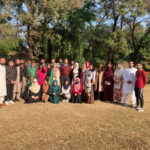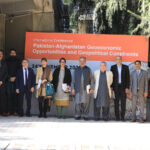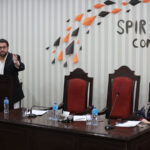QAU Scientist among International Consortium for monitoring environmental resistance
JPI-AMR has granted €1.4 million in funding to EMBARK – a consortium aiming to improve and simplify monitoring of antibiotic resistance in the environment.
At present, there is a lack of comprehensive reference data for resistance in most environments, meaning that there is little knowledge on the range of background abundance and prevalence of antibiotic resistance genes occurring naturally. This is a big obstacle for environmental monitoring efforts, as it is hard to assess if detected resistance types and levels are atypical. Furthermore, the few milieus where we have reasonable reference data are biased towards, for example, sewage and wastewater treatment plants. Outside of those settings we know little about typical resistance patterns in unpolluted environments.
JPI-AMR has now granted funding of €1.4 million (during 2020 – 2022) to the EMBARK consortium, consisting of coordinator Johan Bengtsson-Palme (University of Gothenburg, Sweden), Thomas Berendonk (TU-Dresden, Germany), Luis Pedro Coelho (Fudan University, China), Sofia Forslund (ECRC Max-Delbrück-Centrum für Molekulare Medizin, Germany), Etienne Ruppé (INSERM, France) and Rabaab Zahra (Quaid-i-Azam University, Pakistan).
A primary goal of EMBARK is to establish a baseline for how common resistance is in the environment and what resistance types that can be expected where. That background data will then underpin efforts to standardize different methods for resistance surveillance and identify high-priority target that should be used for efficient monitoring. In addition, EMBARK will develop and evaluate methods to detect new resistance factors and thereby provide an early-warning system for emerging resistance threats.
The progress of the project can be followed here: https://antimicrobialresistance.eu/
 jobs@QAU
jobs@QAU








